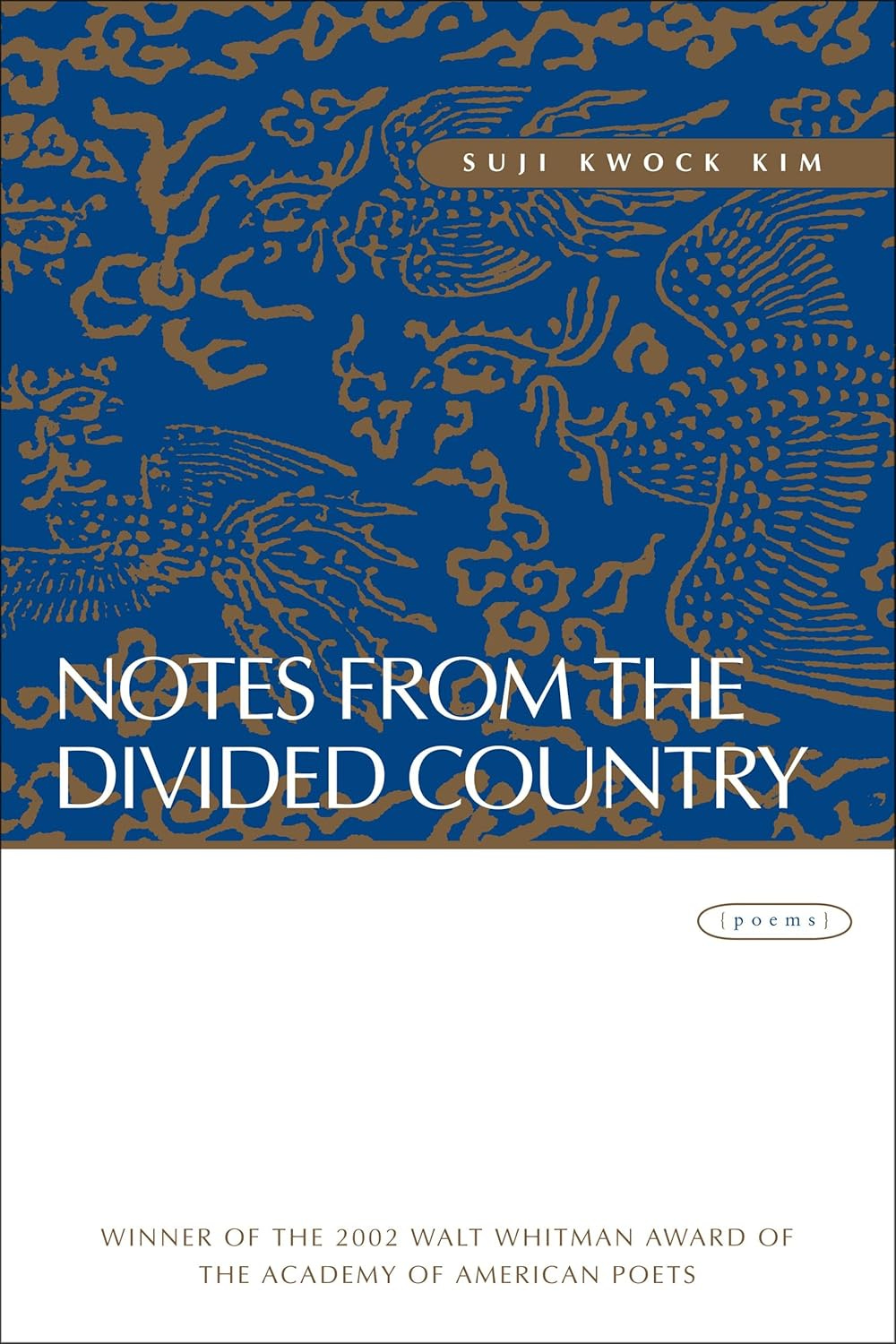How can stark language or unexpected imagery or seemingly unrelated imagery provide a way into writing about the absurdities and/or complexities of the human journey? Of grief? Of colonialism, neo-capitalism, patriarchy, genocide, time, diaspora, love, war? What does it mean to write a “postcolonial” poem & what place do ghosts have in the canon?
I am preparing to teach a two-session workshop for Brooklyn Poets on September 21 & 28 that focuses on writing “postcolonial” poems. In preparing for that workshop, I am revisiting & discovering so many brilliant poets, who are doing revolutionary work around national complicity & imagining new futures. I have also been returning to foundational texts, like Kwock-Kim’s.
I first read Suji Kwock Kim’s work about ten years ago. Her book Notes From the Divided Country (2003), which won the Walt Whitman Award of the Academy of American Poets, is considered a foundational, postcolonial, anti-imperialist text in the canon of diasporic Korean poetry.
And Noor Hindi’s book, Dear God, Dear Bones, Dear Yellow (2022), written 20 years after Kim’s, explores the same themes from the perspective of a young, Palestinian-American woman.
Today’s prompts are inspired by two prose poems—one by Suji Kwock Kim & one by Noor Hindi—as well as my poem Armistice, originally published in Rattle, which appears in my book Daughter of Three Gone Kingdoms (2024), winner of the Perugia Press Prize, the Paterson Poetry Prize & the Eric Hoffer Book Award for Poetry.
~Interested in taking my workshop, The Postcolonial Poem at Brooklyn Poets? Register HERE.
~Interested in manuscript feedback? Check HERE for rates & services.
Keep reading with a 7-day free trial
Subscribe to They Say Poetry is Dead... to keep reading this post and get 7 days of free access to the full post archives.




